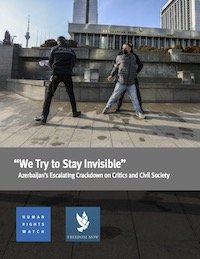By Colleen Putzel-Kavanaugh and Ariel G. Ruiz Soto
For the just-ended 2024 fiscal year, the Biden administration turned the tide at the U.S.-Mexico border after two years of record levels of irregular crossings, by deepening its carrot-and-stick approach alongside increased immigration enforcement throughout the Western Hemisphere, especially from Mexico. For the full fiscal year that ended September 30, U.S. Customs and Border Protection (CBP) reported 2.1 million encounters at and between ports of entry along the Southwest border—a 14 percent decrease from the nearly 2.5 million encounters recorded in FY 2023. The month of September represented the lowest monthly encounters of migrants crossing the U.S.-Mexico border without authorization seen during this administration—with 54,000 encounters a steep drop from the all-time monthly high of 250,000 encounters recorded in December 2023. The September tally also represents the lowest level of irregular arrivals since September 2020, at the tail end of the Trump administration. An additional 199,000 encounters were recorded at the U.S.-Canada border during FY 2024, for a total at all borders of 2.3 million. The Biden playbook rests on narrowing asylum eligibility for migrants who cross the border illegally, expanding the use of lawful migration pathways, and encouraging Mexico, Panama, Costa Rica, and other regional partners to increase their migration controls and enforcement. Unauthorized crossings of the U.S. Southern border began to fall steadily in January as Mexico further stepped up its enforcement. Irregular crossings dropped even more sharply following the administration’s June implementation of the Secure the Border rule. This rule suspends asylum eligibility at the border when crossings reach a seven-day average of 2,500; the bar remains in place until encounters drop below 1,500 for 28 consecutive days. At the same time, options for lawful migration pathways—such as the Cuban, Haitian, Nicaraguan, and Venezuelan (CHNV) parole program; use of the CBP One app to schedule an appointment to be screened for entry at a port; and Safe Mobility Offices (SMOs) that allow migrants to be considered for protection or other pathways far earlier in their journeys—have led to more migrants arriving at ports of entry to be paroled into the country and as refugees.
Washington, DC: Migration Policy Institute, 2024.




















